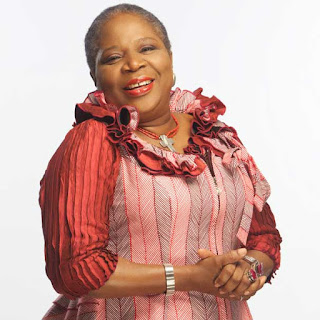Nigeria is ready to stop gender-based violence
Minister of Women Affairs and Social Development, Mrs Aisha Al-Hassan, says at the 69th Commission on the Status of Women (CSW) in New York yesterday, March 15th that Nigeria is fit to eliminate gender-based violence in the society.
She said the Violence against People Prohibition Act enacted in May 2015 criminalised all forms of gender-based violence, harmful practices against women and girls, rape, and economic and political marginalization.
The minister also said the national gender policy and its strategic implementation framework and plan focused on reproductive health, education, countering violence against women, and economic empowerment.
She added that the Federal Government had created programmes that addressed specific social needs, which are, skills acquisition for youths, meals for primary school students and financial support to one million female marketers and artisans.
Al-Hassan called on Member States to implement national policies to combat gender-based violence and other human rights violations. And focus on the causes of violence.
Mrs Caroline Dinenage, Minister for Women, Equalities and Family Justice of the United Kingdom, said women were the focus of conflict.
She said women had the right to live without fear noting that UK recently launched a new cross-Government Violence Against Women and Girls Strategy.
The strategy sets out ambitious plans to prevent violence, support victims and take action against perpetrators.
Minister for Family and Promotion of Women of Angola, Mrs Maria Delgado, spoke on progress in protecting women from sexual abuse, violence and early marriage in her country.
Delgado noted that Angola, in 2015, created a domestic violence hotline, as well as family counselling centres and shelters.
Laurence Rossignol, Minister for Families, Children and Women’s Rights of France, said human rights violations continued to occur due to religious extremism and under the guise of cultural relativism. And women were raped as a weapon of war or reduced to slavery by groups such as Da’esh.
However, he said such violations were not limited to war zones.
He added that domestic violence, forced marriages and female genital mutilation happen around the world.
Mrs Tatau Godinho, Secretary of Policies of Women's Work and Economic Authonomy of Brazil said her country has set up 27 facilities in providing help for female victims of violence.
She added that, Brazil recently passed a Bill criminalising femicide, which imposed harsher penalties for those who harmed or killed women or girls.
Ministers and other senior officials from Botswana (on behalf of Southern African Development Community), Papua New Guinea (on behalf of the Pacific Islands Forum), Canada, Morocco, Slovenia, Luxembourg and Japan spoke too.
Others were Peru, Israel, Poland, Republic of Korea, Qatar, Iceland, Austria, Mozambique, South Africa, Bahrain, Côte d’Ivoire, Norway, Czech Republic, Cuba, Lithuania, Costa Rica, Madagascar, Paraguay, and so on.
Source: The Guardian




Comments